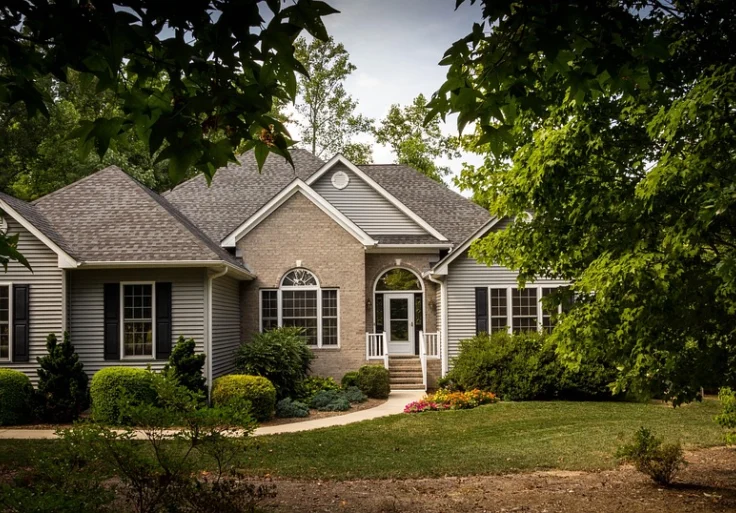Understanding USDA Loan Property Requirements
A USDA home loan is a mortgage product only available to eligible borrowers in certain rural and suburban areas. The program aims to encourage more Georgia residents to purchase homes in these areas instead of large cities. With the government’s backing through the United States Department of Agriculture, USDA rural housing loans make homeownership more affordable and accessible, especially for low-income borrowers.
Applicants must meet eligibility criteria to qualify for a USDA loan, including a household income limit. Eligible borrowers may qualify for down payment assistance programs if they qualify for a USDA loan. They are subject to a guarantee fee, credit score requirements, and must have a good debt to income ratio. There are no prepayment penalties, making it easier to complete a home purchase in rural areas.
Eligible borrowers with a previous short sale must meet specific criteria as well. If the short sale was due to divorce, lenders may not care. However, if it doesn’t meet specific criteria, you may have to wait three years for a mortgage with a USDA loan.
Your home must meet specific standards if you want to purchase a Georgia property with a USDA loan. It must be located in an eligible area that is safe and livable for the buyer. These standards ensure that the program promotes affordable housing for the target demographic.
Let’s discuss USDA eligibility in greater detail so you can assess your qualification for a home loan and enjoy lower interest rates.
Eligible Locations for USDA Properties in Georgia
The home's location is the most critical Georgia USDA loan program requirement, even if an applicant meets specific criteria like credit score and income requirements. A USDA loan can only be used to buy properties in designated areas. These zones include primarily rural areas and some suburban areas instead of major cities.
For example, few homes in Atlanta are eligible for a USDA loan. Most major Georgia cities across the country do not meet the requirements of this program. However, searching markets on the city's outskirts or rural areas deep in the country will likely find more eligible properties.
While much of Atlanta may be ineligible under USDA loan requirements, some counties in the surrounding areas could have many properties allowing USDA financing. Baldwin, Burke, Jefferson, and Lincoln counties are all popular choices for homebuyers with Georgia USDA loans. The best way to determine if the home you want is in a designated zone is by checking the USDA eligibility map.
Property Types That Qualify for USDA Loans in Georgia
USDA eligibility also depends on the type of property you want to purchase. A USDA-approved lender will only grant financing if you buy a home to serve as your primary residence. This could include a single-family home, modular home, or certain townhomes.
The list of properties not qualifying for a USDA loan is quite long. You cannot buy commercial properties with a USDA home loan. Investment properties, such as rental properties for short-term or long-term tenants, are also disqualified from the program. You cannot purchase a second or vacation home with your USDA loan.
Home buyers can only use USDA loans if they purchase eligible properties. It doesn’t matter if they meet income requirements for their household size, have saved up money for closing costs, and have a solid job history. It’s important to ensure you want to live in eligible rural areas before applying for a USDA loan.
Structural and Livability Standards for USDA Properties
Conventional loans often do not have high standards for the condition of the properties they purchase. After all, the owners can do what they want with these properties, including fixing them up. However, for USDA rural housing loans, the property must adhere to specific livability and sound structure standards.
To qualify for a USDA home loan, the roof, plumbing, and electrical systems must be functional and in good working order. Additionally, the foundation or structure of the home cannot have significant issues, such as sagging ceilings, rotted framing, or large foundational cracks. These issues may disqualify the property, even if it is in a USDA-eligible area.
Lot and Land Requirements
Many borrowers are unaware of the lot size requirements for USDA properties. While you can access benefits like no down payment and lower interest rates with this program, you must find a property that adheres to the size requirements to have your USDA loan approved.
The program focuses on the residential building itself, but the land cannot be large enough to be subdivided under local zoning regulations. There are no set limits because property values vary based on location, but the land size must be adequate for the home.
Generally, the site’s value should not exceed 30% of the property’s value. Since the property cannot have a commercial purpose, no part of the land can be used to produce income.
The USDA allows decent acreage for these properties, especially for home buyers with larger households. This is why many rural and suburban Georgia properties maintain their eligibility. Plenty of homes with significant land adhere to the maximum USDA loan requirements for plot size. Rural areas in Georgia frequently meet these property standards.
Appraisal Requirements for USDA Properties
The property must pass the appraisal process before your USDA loan is approved for a primary residence. USDA loans require a professional appraisal to ensure the property meets the eligibility requirements. The appraiser will visit the property and look for issues such as foundational cracks, dysfunctional plumbing, electrical problems, or a degrading roof. The appraisal aims to determine whether the property is livable and worth the purchase price.
Once the appraiser verifies that the home is up to USDA standards and is not worth significantly less than the sale price, the mortgage process can proceed. The appraisal is separate from the rest of the underwriting process when the lender assesses your credit score, debt-to-income ratio, ability to pay closing costs, and financial background.
The property must pass the appraisal, and you must meet the lender’s borrower requirements before proceeding with the transaction. If you want to simplify the appraisal and the rest of the mortgage process, home buyers should work with a USDA lender with experience in Georgia markets.
Finding USDA-Eligible Properties in Georgia
Finding eligible properties in Georgia is simple if you know where to look. The simplest way to check the status of the house you want is with the USDA eligibility map, where you can plug in a specific address.
Another option is to consult a real estate agent familiar with local housing markets who has helped other borrowers secure a loan to purchase properties. You can also rely on a lender like TrueWay Mortgage to help you understand the various USDA loan standards, including property location, the household income limit, down payment requirements, and private mortgage insurance rates.
Verifying property eligibility early in your home search is essential to buying a house in Georgia using the USDA program. The team at TrueWay Mortgage can guide you through the mortgage process, including location verification. Call us today at 404-962-0032 to get started with your home search and USDA loan application.





